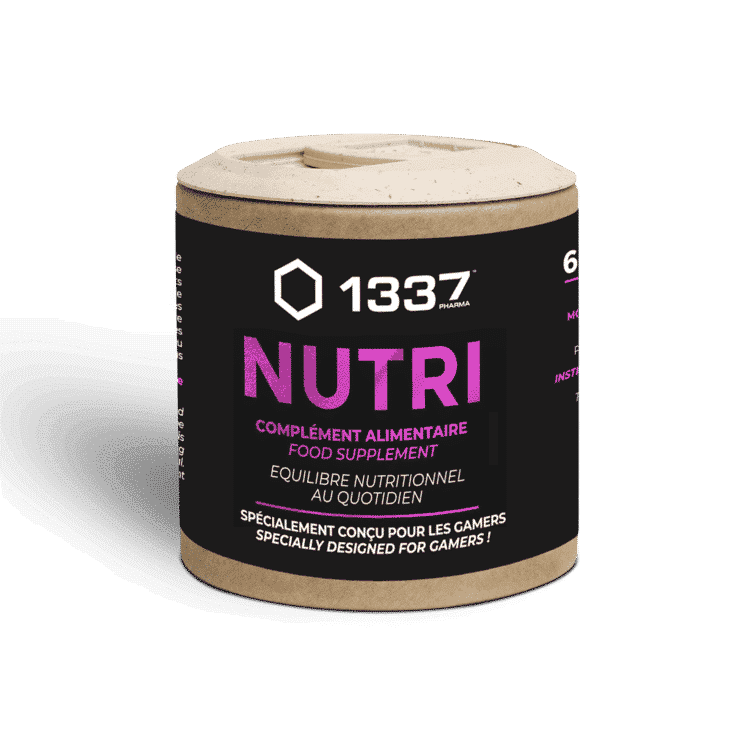LE cuivre
Ingrédient
Qu’est ce que le Cuivre ?
D’où provient-il ?
Pourquoi est-il utilisé ?
Quels sont les bénéfices ?
Bibliographie
Qu'est-ce-que le Cuivre ?
Le cuivre, le troisième oligo-élément le plus abondant dans le corps humain, revêt une importance cruciale pour le bon fonctionnement de nombreuses fonctions biologiques (de Baaij et al., 2015). Impliqué dans des centaines de processus métaboliques, le cuivre joue un rôle essentiel, de la formation de collagène à la défense immunitaire (Gröber et al., 2015).
D’où provient-il ?
Les principales sources alimentaires de cuivre incluent les fruits de mer, les noix, les graines, les céréales complètes et les légumes verts à feuilles. Alors que des quantités adéquates de cuivre sont nécessaires pour maintenir la santé, des études indiquent que de nombreuses personnes ne parviennent pas à atteindre des niveaux suffisants de cet oligo-élément (Gröber et al., 2015).
Pourquoi est-il utilisé ?
-
Soutien Immunitaire : Le cuivre participe activement au fonctionnement du système immunitaire, favorisant la réponse du corps aux infections (Gröber et al., 2015).
-
Formation de Collagène : En tant que cofacteur dans la synthèse du collagène, le cuivre est crucial pour le maintien de la structure et de l’élasticité des tissus conjonctifs, contribuant ainsi à la santé des articulations et de la peau (de Baaij et al., 2015).
-
Anti-inflammatoire : Des recherches suggèrent que le cuivre peut avoir des propriétés anti-inflammatoires, offrant un potentiel bénéfique dans la gestion des conditions inflammatoires (Gröber et al., 2015).
-
Santé Cardiovasculaire : Certains liens entre des niveaux adéquats de cuivre et la santé cardiovasculaire ont été établis, bien que des études supplémentaires soient nécessaires pour approfondir ces associations (Tangvoraphonkchai & Davenport, 2018).
-
Cognition et Développement Neurologique : Le cuivre est également impliqué dans le développement neurologique, et des niveaux appropriés peuvent contribuer au maintien de la santé cognitive (de Baaij et al., 2015).

Quels sont les bénéfices ?
Bibliographie
1. Abbasi, B., Kimiagar, M., Sadeghniiat, K., Shirazi, M. M., Hedayati, M., & Rashidkhani, B. (2012). The effect of magnesium supplementation on primary insomnia in elderly : A double-blind placebo-controlled clinical trial. Journal of Research in Medical Sciences : The Official Journal of Isfahan University of Medical Sciences, 17(12), 1161‐1169.
2. Asbaghi, O., Hosseini, R., Boozari, B., Ghaedi, E., Kashkooli, S., & Moradi, S. (2021). The Effects of Magnesium Supplementation on Blood Pressure and Obesity Measure Among Type 2 Diabetes Patient : A Systematic Review and Meta-analysis of Randomized Controlled Trials. Biological Trace Element Research, 199(2), 413‐424. https://doi.org/10.1007/s12011-020-02157-0
3. Banjanin, N., & Belojevic, G. (2018). Changes of Blood Pressure and Hemodynamic Parameters after Oral Magnesium Supplementation in Patients with Essential Hypertension-An Intervention Study. Nutrients, 10(5), E581. https://doi.org/10.3390/nu10050581
4. Barbagallo, M., & Dominguez, L. J. (2015). Magnesium and type 2 diabetes. World Journal of Diabetes, 6(10), 1152‐1157. https://doi.org/10.4239/wjd.v6.i10.1152
5. Barragán-Rodríguez, L., Rodríguez-Morán, M., & Guerrero-Romero, F. (2008). Efficacy and safety of oral magnesium supplementation in the treatment of depression in the elderly with type 2 diabetes : A randomized, equivalent trial. Magnesium Research, 21(4), 218‐223.
6. de Baaij, J. H. F., Hoenderop, J. G. J., & Bindels, R. J. M. (2015). Magnesium in man : Implications for health and disease. Physiological Reviews, 95(1), 1‐46. https://doi.org/10.1152/physrev.00012.2014
7. Dibaba, D. T., Xun, P., Song, Y., Rosanoff, A., Shechter, M., & He, K. (2017). The effect of magnesium supplementation on blood pressure in individuals with insulin resistance, prediabetes, or noncommunicable chronic diseases : A meta- analysis of randomized controlled trials. The American Journal of Clinical Nutrition, 106(3), 921‐929. https://doi.org/10.3945/ajcn.117.155291
8. DiNicolantonio, J. J., O’Keefe, J. H., & Wilson, W. (2018). Subclinical magnesium deficiency : A principal driver of cardiovascular disease and a public health crisis. Open Heart, 5(1), e000668. https://doi.org/10.1136/openhrt-2017-000668
9. Gaul, C., Diener, H.-C., Danesch, U., & Migravent® Study Group. (2015). Improvement of migraine symptoms with a proprietary supplement containing riboflavin, magnesium and Q10 : A randomized, placebo-controlled, double-blind, multicenter trial. The Journal of Headache and Pain, 16, 516. https://doi.org/10.1186/s10194-015-0516-6
10. Gröber, U., Schmidt, J., & Kisters, K. (2015). Magnesium in Prevention and Therapy. Nutrients, 7(9), 8199‐8226. https://doi.org/10.3390/nu7095388
11. Mah, J., & Pitre, T. (2021). Oral magnesium supplementation for insomnia in older adults : A Systematic Review & Meta- Analysis. BMC Complementary Medicine and Therapies, 21(1), 125. https://doi.org/10.1186/s12906-021-03297-z
12. Romani, A. M. P. (2018). Beneficial Role of Mg2+ in Prevention and Treatment of Hypertension. International Journal of Hypertension, 2018, 9013721. https://doi.org/10.1155/2018/9013721
13. Rosique-Esteban, N., Guasch-Ferré, M., Hernández-Alonso, P., & Salas-Salvadó, J. (2018). Dietary Magnesium and Cardiovascular Disease : A Review with Emphasis in Epidemiological Studies. Nutrients, 10(2), 168. https://doi.org/10.3390/nu10020168
14. Serefko, A., Szopa, A., & Poleszak, E. (2016). Magnesium and depression. Magnesium Research, 29(3), 112‐119. https://doi.org/10.1684/mrh.2016.0407
15. Simental-Mendía, L. E., Sahebkar, A., Rodríguez-Morán, M., & Guerrero-Romero, F. (2016). A systematic review and meta-analysis of randomized controlled trials on the effects of magnesium supplementation on insulin sensitivity and glucose control. Pharmacological Research, 111, 272‐282. https://doi.org/10.1016/j.phrs.2016.06.019
16. Solati, M., Ouspid, E., Hosseini, S., Soltani, N., Keshavarz, M., & Dehghani, M. (2014). Oral magnesium supplementation in type II diabetic patients. Medical Journal of the Islamic Republic of Iran, 28, 67.
17. Tangvoraphonkchai, K., & Davenport, A. (2018). Magnesium and Cardiovascular Disease. Advances in Chronic Kidney Disease, 25(3), 251‐260. https://doi.org/10.1053/j.ackd.2018.02.010
18. Tarleton, E. K., Littenberg, B., MacLean, C. D., Kennedy, A. G., & Daley, C. (2017). Role of magnesium supplementation in the treatment of depression : A randomized clinical trial. PloS One, 12(6), e0180067. https://doi.org/10.1371/journal.pone.0180067
19. Verma, H., & Garg, R. (2017). Effect of magnesium supplementation on type 2 diabetes associated cardiovascular risk factors : A systematic review and meta-analysis. Journal of Human Nutrition and Dietetics: The Official Journal of the British Dietetic Association, 30(5), 621‐633. https://doi.org/10.1111/jhn.12454
20. von Luckner, A., & Riederer, F. (2018). Magnesium in Migraine Prophylaxis-Is There an Evidence-Based Rationale? A Systematic Review. Headache, 58(2), 199‐209. https://doi.org/10.1111/head.13217
21. Wu, J., Xun, P., Tang, Q., Cai, W., & He, K. (2017). Circulating magnesium levels and incidence of coronary heart diseases, hypertension, and type 2 diabetes mellitus : A meta-analysis of prospective cohort studies. Nutrition Journal, 16, 60. https://doi.org/10.1186/s12937-017-0280-3
22. Zhang, X., Li, Y., Del Gobbo, L. C., Rosanoff, A., Wang, J., Zhang, W., & Song, Y. (2016). Effects of Magnesium Supplementation on Blood Pressure : A Meta-Analysis of Randomized Double-Blind Placebo-Controlled Trials. Hypertension (Dallas, Tex.: 1979), 68(2), 324‐333. https://doi.org/10.1161/HYPERTENSIONAHA.116.07664
23. Zhang, Y., Chen, C., Lu, L., Knuston, K., Carnethon, M., Fly, A., Luo, J., Haas, D., Shikany, J., & Kahe, K. (2021). Association of Magnesium Intake With Sleep Duration and Sleep Quality : Findings From the CARDIA Study. Current Developments in Nutrition, 5(Suppl 2), 1109. https://doi.org/10.1093/cdn/nzab053_102

